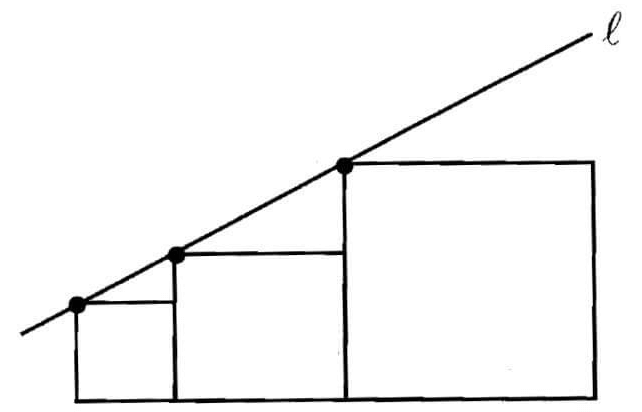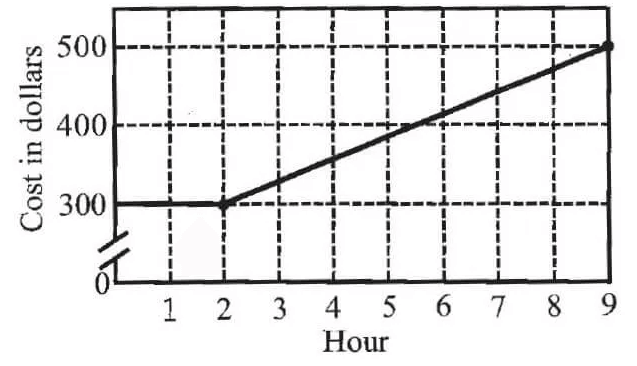PARALLEL LINES IN THE COORDINATE PLANE
Parallel lines are the lines that never intersect.
In the coordinate plane, they would look like as shown below.
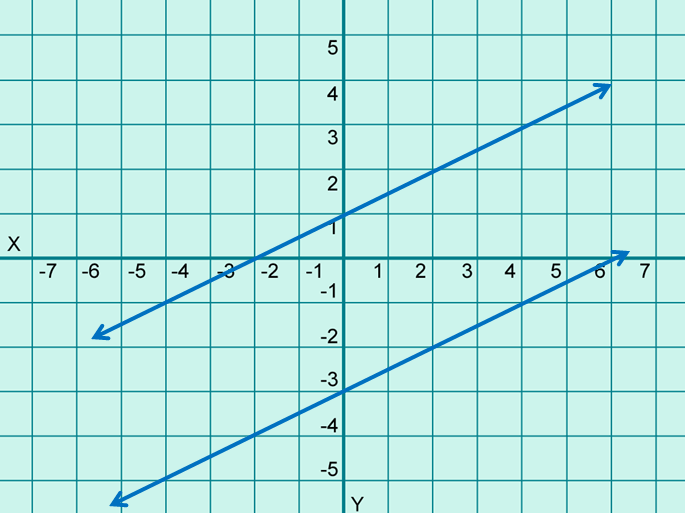
If we take a closer look at these two lines, the slope of both the lines is 1/2.
This can be generalized to any pair of parallel lines. Parallel lines always have the same slope and different y-intercepts.
Postulate (Slopes of Parallel Lines) :
In a coordinate plane, two lines are parallel if and only if they have the same slope.
Slope of a Line in Coordinate Plane
The slope of a non vertical line is the ratio of the vertical change (the rise) to the horizontal change (the run).
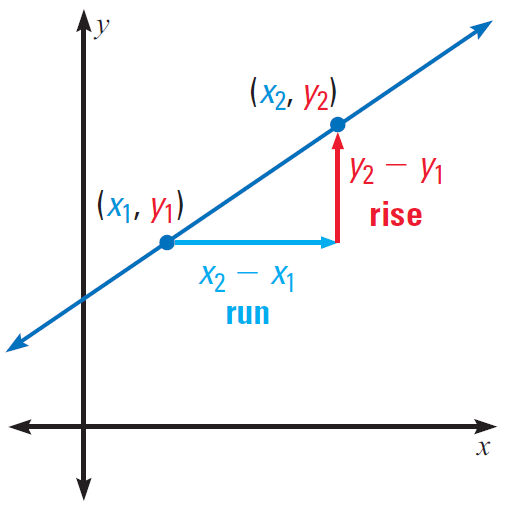
If the line passes through the points (x1, y1) and (x2, y2), then the slope is given by
Slope = rise/run
Slope = (y2 - y1)/(x2 - x1)
Usually, slope is represented by the variable m.
Example 1 :
In the diagram given below, find the slope of each line. Determine whether the lines j1 and j2 are parallel.
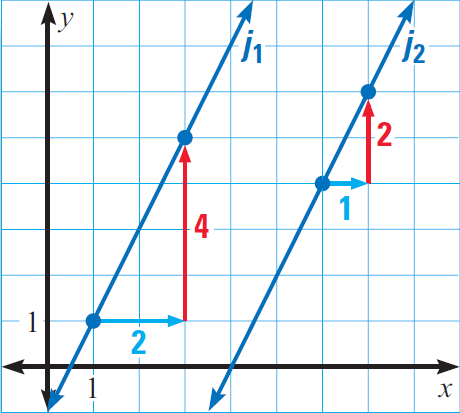
Solution :
Line j1 has a slope of
m2 = 4/2
= 2
Line j2 has a slope of
m2 = 2/1
= 2
Since the slope of the lines j1 and j2 are equal, the lines j1 and j2 are parallel.
Example 2 :
In the diagram given below, find the slope of each line. Which lines are parallel?
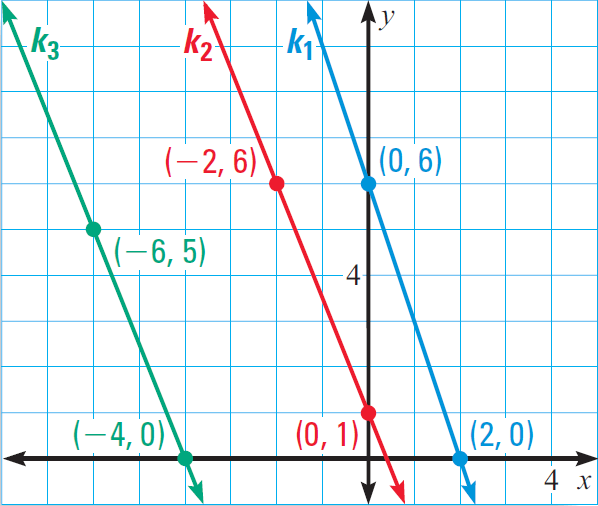
Solution :
Part 1 :
Find the slope of the line k1. Line k1 is passing through the points (0, 6) and (2, 0).
Let (x1, y1) = (0, 6) and (x2, y2) = (2, 0).
Slope (k1) = (y2 - y1)/(x2 - x1)
= (0 - 6)/(2 - 0)
= -6/2
= - 3
Part 2 :
Find the slope of the line k2. Line k2 is passing through the points (-2, 6) and (0, 1).
Let (x1, y1) = (-2, 6) and (x2, y2) = (0, 1).
Slope (k2) = (y2 - y1)/(x2 - x1)
= (1 - 6)/[0 -(-2)]
= (1 - 6)/[0 + 2]
= -5/2
Part 3 :
Find the slope of the line k3. Line k3 is passing through the points (-6, 5) and (-4, 0).
Let (x1, y1) = (-6, 5) and (x2, y2) = (-4, 0).
Slope (k3) = (y2 - y1)/(x2 - x1)
= (0 - 5)/[-4 - (-6)]
= -5/(-4 + 6)
= -5/2
Compare the slopes. Because k2 and k3 have the same slope, they are parallel. Line k1 has a different slope, so it is not parallel to either of the lines.
Example 3 :
Write an equation of the line through the point (2, 3) that has a slope 5.
Solution :
Slope-intercept form equation of a line :
y = mx + b ----(1)
Substitute (x, y) = (2, 3) and m = 5.
3 = 5(2) + b
Simplify.
3 = 10 + b
Subtract 3 from both sides.
-7 = b
The equation of the required line is
(1)----> y = 5x - 7
Example 4 :
In the diagram given below, line n1 has the equation
y = -x/3 -1
Line n2 is parallel to the line n1 and passes through the point (3, 2).
Write the equation of the line n2.
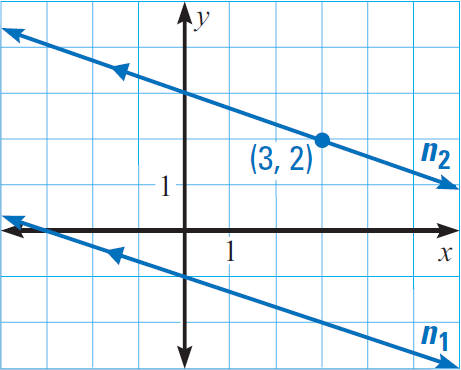
Solution :
The slope of the line n1 is -1/3. Because the lines n1 and n2 are parallel, they have the same slope. So, the slope of the line n2 is also -1/3.
Slope-intercept form equation of a line :
y = mx + b ----(1)
Because the line n2 is passing through (3, 2), substitute
(x, y) = (3, 2) and m = -1/3
2 = (-1/3)(3) + b
Simplify.
2 = -1 + b
Add 1 to both sides.
3 = b
The equation of the required line is
(1)----> y = (-1/3)x + 3
y = -x/3 + 3
Kindly mail your feedback to v4formath@gmail.com
We always appreciate your feedback.
©All rights reserved. onlinemath4all.com
Recent Articles
-
Digital SAT Math Problems and Solutions (Part - 146)
Apr 18, 25 06:52 AM
Digital SAT Math Problems and Solutions (Part - 146) -
Logarithmic Derivative Problems and Solutions
Apr 16, 25 09:25 PM
Logarithmic Derivative Problems and Solutions -
Digital SAT Math Problems and Solutions (Part - 145)
Apr 16, 25 12:35 PM
Digital SAT Math Problems and Solutions (Part - 145)
